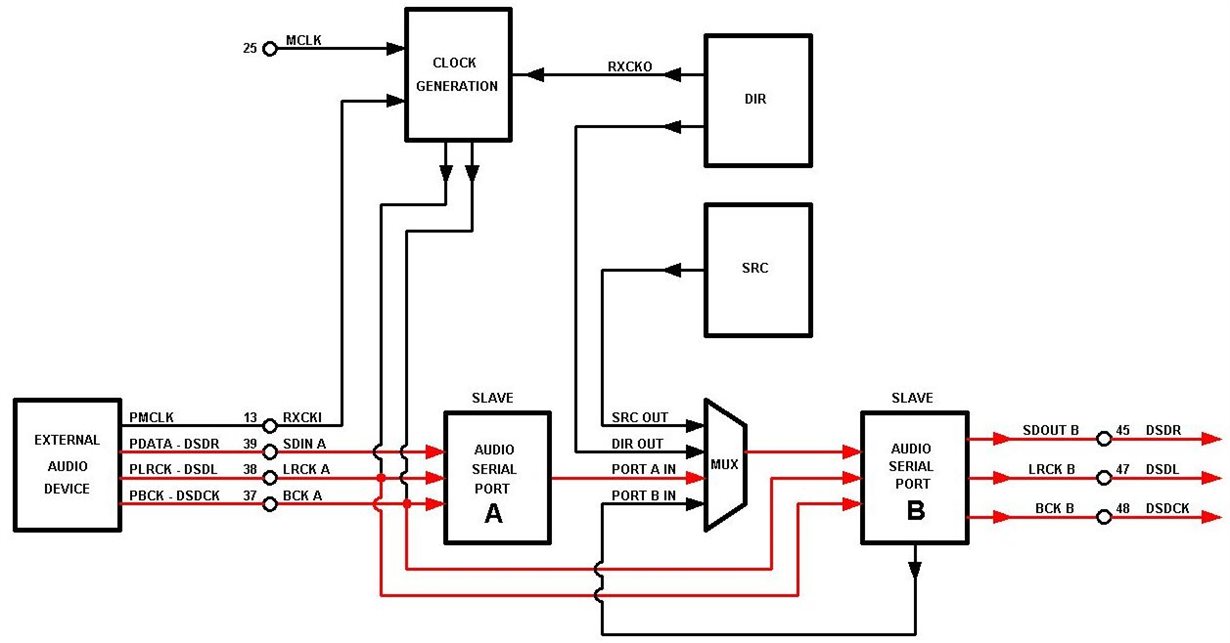Other Parts Discussed in Thread: SRC4392
Hi
Do you think that the SRC4193 could transfer DSD audio data in Bypass Mode? In datasheet is refered:
A bypass mode is included, which allows audio data to be passed directly from the input port to the output port, bypassing the ASRC function. The bypass option is useful for passing through encoded or compressed audio data, or nonaudio control or status data.
From what i understand, there is not restriction as for the data format. If PCM data can be bypassed, then and DoP (DSD over PCM) formated could be bypassed. Is there someone having experience on this issue?
Thanks


